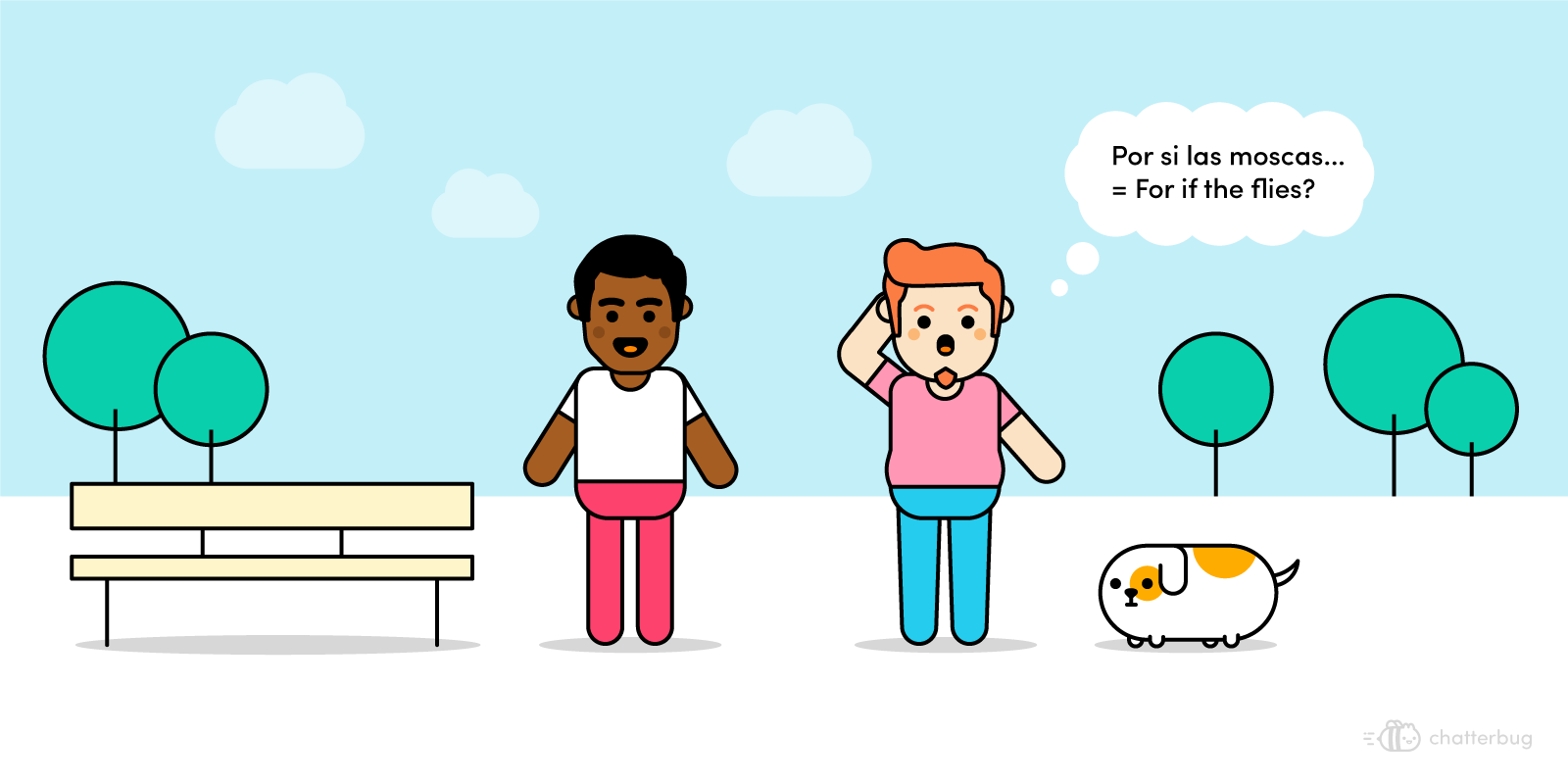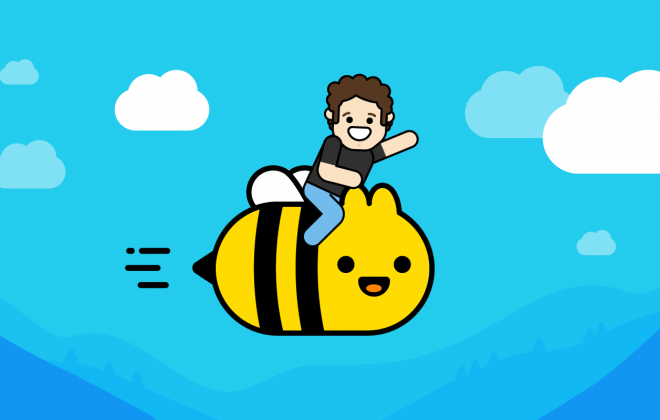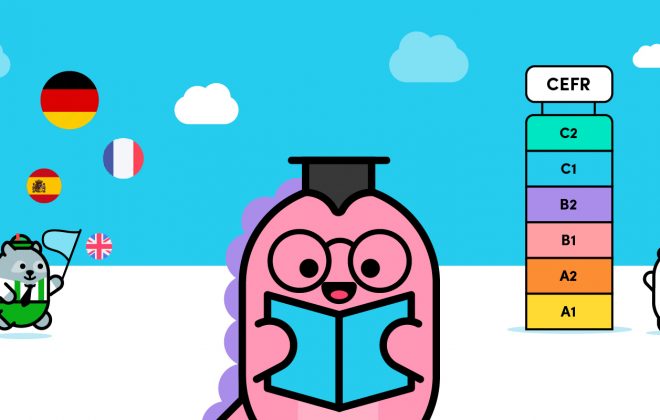Translation: a Double-Edged Sword in Language Learning
Many people learn a foreign language, translating it to their native language most of the time, but is this actually helpful? There are many factors that can influence your language learning path, so at a basic level, the answer is that it depends. My name is María José. I am a linguist, a translator and a Curriculum Developer here at Chatterbug. In this post, I am going to tell you about why not using your native language so much can help you progress faster. Let’s begin with my personal experience.
How do You Say “Cocodrilo” in English?
Throughout my life I have learned several languages and I’ve tried a few different approaches. I come from a part of Spain that is rather isolated, linguistically speaking. It is surrounded by the sea and by other Spanish-speaking cities. Growing up, this meant that any language I wanted to learn had to be learned with the help of books, videos or sometimes tourists.
I started learning my first foreign language, English, when I was six or seven years old. I only had contact with the language I was learning for an hour three times a week. When I left the classroom, I only wrote, listened, read and spoke in Spanish. I would have loved to have Netflix or Youtube to watch movies and videos in English. However, I remember I had this picture dictionary that I used to love going through and looking up the names of animals, for example. I don’t know why, but I was fascinated by all the animal names in English. I recall that I used to think about the weirdest animals and then try to look them up in my book or ask Felicity, my Australian teacher back then, things like: “How do you say “cocodrilo” in English?”
That’s how my passion for languages started. I learned English with a native speaker who didn’t really speak any Spanish. Back then the main focus was on producing the best grammar and getting top results in official examinations. We also did a bit of speaking but always on Fridays when we were all very tired from working on grammar and vocabulary all week.

Becoming a Language Addict
I was always destined to become a language addict.
I started with French when I was 12 and I always had Spanish teachers with a high proficiency in French. As an adult, I moved to Montpellier (France) but I couldn’t even order a café au lait!
While I was at university I learned Chinese, Dutch and Catalan as well. I took 6 semesters of Chinese with teachers that were native speakers and whose Spanish was not very good, and towards the end of the last semester I was able to understand very basic conversations. Unfortunately, because I haven’t used it very often, I find it harder and harder to remember the concepts. During this time, two of my flatmates, who are now very good friends of mine, spoke Catalan in our apartment. I was always listening to and trying to understand what they were saying (with their permission, of course!). They invited me to their home towns where everybody spoke Catalan, I tasted their regional dishes, and they introduced me to really good Catalan bands. Without realising it, I got to a point where I could understand maybe 80% of what they were saying, and I was able to speak Catalan quite comfortably!
I also did a semester abroad in Belgium, in the Dutch-speaking city of Ghent, where I took a 60 hour intensive Dutch course and lived for 7 months. By the end, I could get by in the city and understood some key words in my Belgian friends’ conversations.
The Grammar-Translation and the Communicative Teaching Methods
Linguists still debate about using or not using your native language, also known as L1, in the language learning process. There is still much work and research to be done in order to set up an empirical basis regarding this issue, so there is no right or wrong answer.

In the 19th century, the Grammar-Translation method was developed and applied in classrooms for teaching Latin and Ancient Greek. Any guesses about what they used to do in class? Bingo, reading grammar and translating texts!
At the end of that same century, the trend changed and teaching methods moved to a more communicative style: the Communicative method began to gain more traction. They moved from intensive grammar and translation comprehension exercises to actually encouraging students to use the target language in class as much as they could, often with even partial or total exclusion of the native tongue in the classroom.
So which method is better? I don’t have a definitive answer for that because there are many factors that can have an influence. But I’ve been learning languages myself throughout my life, and analysing all the experiences made me think about whether it’s important or not to translate when learning a foreign language.

Why Translation can Speed up Your Progress in Language Learning
Finding yourself on the edge of the language learning abyss for the first time is not a very pleasant experience. Because of this, it’s understandable that you resort to your first language to feel more comfortable.
Some authors think that translating to your L1 when learning a new language is beneficial. They say that your first language influences the way you think and even the way you express yourself in things such as the word choice or the sentence structure. In my opinion, you can acquire vocabulary faster when you don’t have to think about the possible meaning of words or deduce it from a context. Translating is also helpful to examine structural similarities and differences and avoid a kind of “interference” between different languages.
I personally believe that not only can you use your native language but also any other foreign language you might have previously learned! For example, I might learn a new word in German, say Büro, that is the same word, with the same meaning, as a word I had learned in French, and this association will help me to remember it. Ok, the spelling is a bit different but you see where I’m coming from!
From my experience as a teacher, learning a language as an adult requires talking in the classroom about the actual language that you’re learning. These conversations often include some really abstract concepts such as declinations, conjugations or language moods. In these cases, it sometimes simply saves time and effort to clarify or explain these things in your first language so you can overcome the obstacle faster and then focus on applying it in a controlled environment and ultimately in real life!
However, at some point along the learning path, your native language needs to be moved to the background. Constantly resorting to translation in order to progress can become counterproductive.
Where Should I Stop Translating so Much?
We need four skills to master a language: listening, speaking, reading and writing. In my experience, the most important of these skills that help us master a language are listening and speaking. They don’t match well with translating or using your native language at the same time that you’re using your new language. Can you imagine translating every single sentence or word every time you want to speak? Using your L1 when reading or writing can help sometimes, but at some point you’ll need to stop involving both languages or you’ll risk becoming exhausted.
Translating the input you get from your foreign language shouldn’t be the way to learn it but a tool that you have at your disposal to speed up your progress by helping you acquire the building blocks of a language. Reducing the use of translation when learning a new language can give you the impression that you’re slowing down your progress. But that’s only in the beginning. Give yourself some time to get used to it, it’ll pay off in the end!
A Simple Guide to Turning Your Brain into a Language Learning Machine
“How can I switch off my native language and start thinking in my learning language?”
This is a good question that is difficult to answer. For me, the two things that we must always keep in mind while switching languages are perseverance and exposure.
Exposure refers to the contact that you have with the language. It’s not being applied to any specific part of the language, though. Any type of exposure, no matter how small it is, is valuable! Unfortunately, exposure is not constant or available to all learners. Your brain needs to get used to reading, hearing, writing and, especially, speaking in a different language. That’s not easy! This doesn’t mean it’s impossible but you’ll face larger hurdles and need to find more motivation in the beginning.
Do you go to the gym, or are you practicing any sport? I’m sure you know that if you want to see results, you need to persevere in your workouts or training. Well, the exact same thing happens when you learn another language: you need perseverance through repetition. Naturally, there are many nuances to this concept but in terms of language acquisition, I relate perseverance to willpower and motivation.
You need to get used to the new language and if you create the habit of surrounding yourself with it, your brain will feel more and more comfortable in that foreign language. So don’t be afraid of trying anything. Bit by bit, your brain won’t need to use your native language that often.

An easy way to start is by listening to music or podcasts, watching movies or videos in your target language or better still speaking it right away! I know this may sound terrifying and in the beginning you’ll feel like you’re talking nonsense, but this is actually the best way to solidify all the information that you’ve been absorbing passively. It is also always better to start making simple sentences and increase complexity as you progress and learn new concepts. There’s no need to over-complicate what you want to say!
It’s completely normal in the beginning to be thinking in your native language most of the time, going back and forth between the two, but eventually you’ll find yourself thinking and speaking in the other language without even realising it! Who knows, you may even start dreaming in a foreign language ;).
My Latest Language: German
I’m currently living in Berlin and I’m using Chatterbug to learn German. In this case I’m learning German through English, which isn’t my mother tongue but can be considered to be within my “language comfort zone”. The role of English at Chatterbug is only to help you acquire the small parts of the language to help you with the communicative exercises that you will later go through with a tutor.
Chatterbug helps me to increase the exposure because I have the language I want to learn just a click away and it’s easier for me to persevere because I have already created a bond of friendship with the tutors. In this environment I feel safe to make as many mistakes as I need to prepare myself for real life. It works quite well!

Want to learn more?
If you’re feeling inspired, sign up below for a free two-week trial and a Live Lesson with a private qualified tutor to start speaking a new language for real! Our classes are structured around exercises created by language teachers, so there’ll be no awkward silences – we promise! 😉
And don’t forget to check out our Facebook, Twitter and Instagram pages for more language content!



